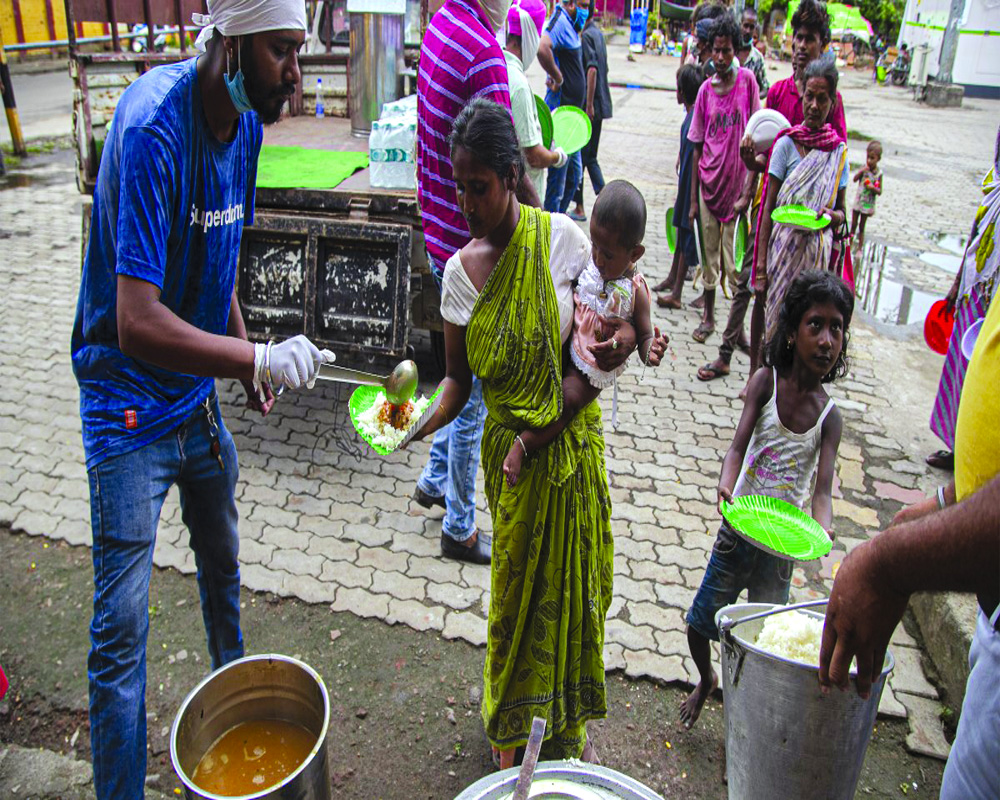The social sector attracted attention during the outbreak, but it has led many relief initiatives in the past too
On the morning of March 25, 2020, less than 12 hours after the nationwide lockdown announced by the Indian Government to curb the spread of COVID-19, the nation woke up to heartbreaking visuals of thousands of migrant workers walking on national highways. According to the Ministry of Labour and Employment, more than 1.06 crore migrant workers returned to their homes during the lockdown. The journey turned out to be both arduous and fatal with at least 29,415 workers having lost their lives, official figures revealed. While the affluent city dwellers struggled with the new world order of working at and from home, a section of our society was exposed to the threats of Covid-19 as well as hunger, unemployment and displacement.
The first relief response to this humanitarian crisis came from India’s social sector and Civil Society Organisations (CSOs) ensured that the marginalised population, especially the migrant and daily wage labourers, were not starving. So, CSOs provided 30.11 lakh meals during the first phase of the lockdown. In many States, civil society responded even before the Government did. It was a critical initiative where the Public Distribution System was not accessible until a few days after the lockdown was announced.
According to the report, ‘COVID-19 Pandemic: Civil Society Response and Challenges Ahead’, by the Azim Premji University, CSOs initiated relief services and partnered with local governments to deliver food grain to remote areas. Besides immediate relief, CSOs played a major role in creating awareness about the COVID-19 health protocols. Distributing masks and sanitisers could only help as much; the CSOs needed to generate awareness about social distancing and hygiene, too. Initiatives such as the Bundelkhand Initiative for Water Agriculture and Livelihoods, led by Self-Reliant Initiatives through Joint Action, attempted to revive the traditional water bodies in Bundelkhand, to tackle water scarcity and avoid crowding at hand-pumps and wells.
Women were disproportionately affected by the contagion. Their labour force shrunk by 13 per cent, as compared to two per cent for men, making them impoverished, jeopardising their health and exposing them to increased dangers of domestic violence. The National Commission of Women recorded 13,410 complaints of gender-based crimes between March-September last year, including 4,350 cases of domestic violence. The social sector spearheaded the response to this shadow pandemic of violence. Organisations such as Shakti Shalini, a Delhi-based CSO, ran a 24-hour helpline. Association for Advocacy and Legal Initiatives helped the women register complaints and get shelter while Self-Employed Women’s Association devised a long-term strategy to tackle the fallout of the lockdown by adopting a three-fold strategy: Safeguarding health, restoring livelihoods and extending social protection and food security.
The social sector attracted attention during this pandemic, but it has quietly led many relief initiatives in the past too. Be it cyclone Amphan or more recently, the Uttarakhand floods. So, if India has to achieve its Sustainable Development Goals or realise a more equitable form of development, then the role of CSOs cannot be ignored. The sector needs investments of different kinds: Money, people and intent. We need skilled and sensitive citizens who can contribute in meaningful ways to the sector apart from pressing the donate now button on Facebook.
(The writer is founder and director, India Leaders for Social Sector. The views expressed are personal.)


























